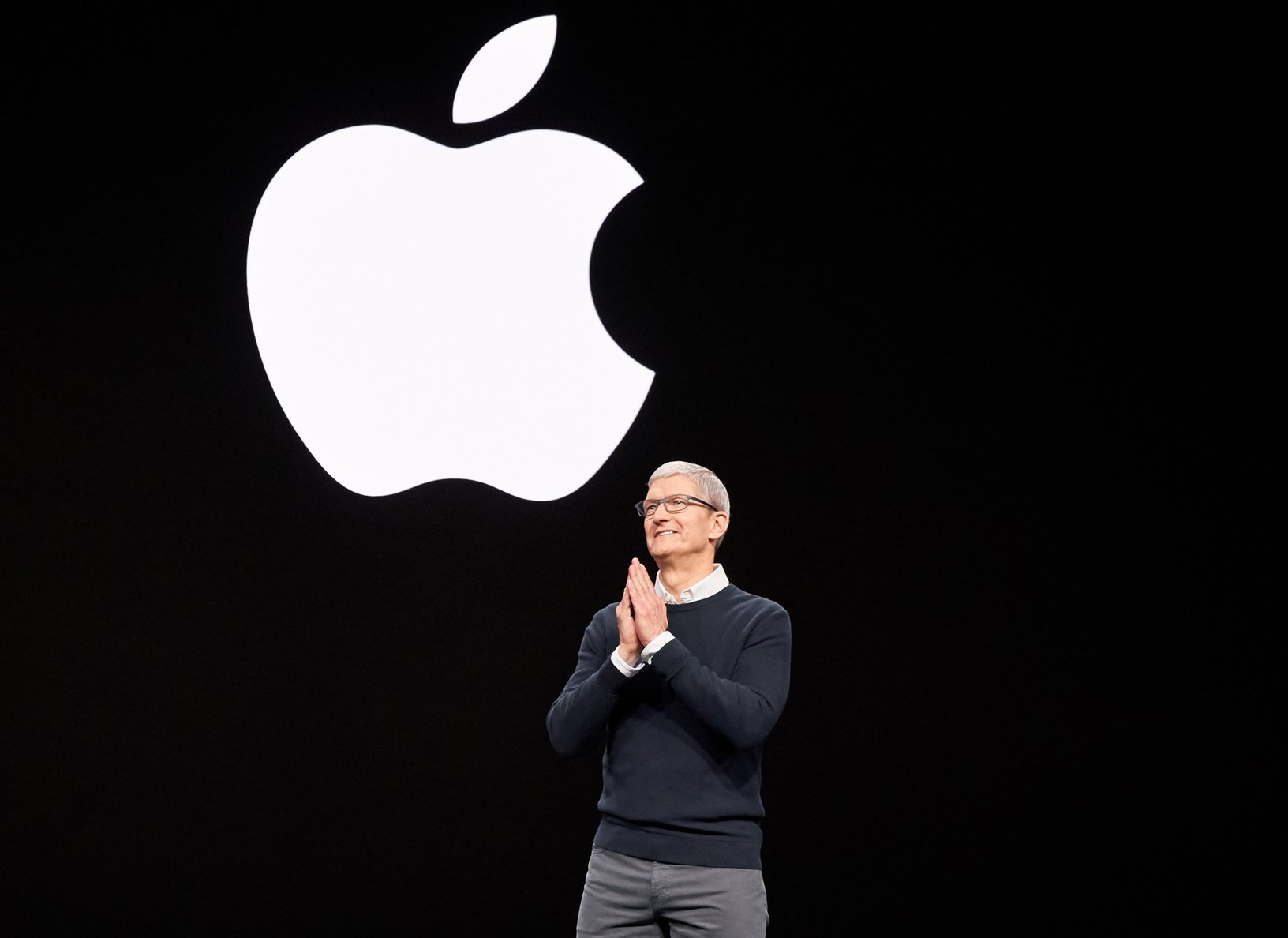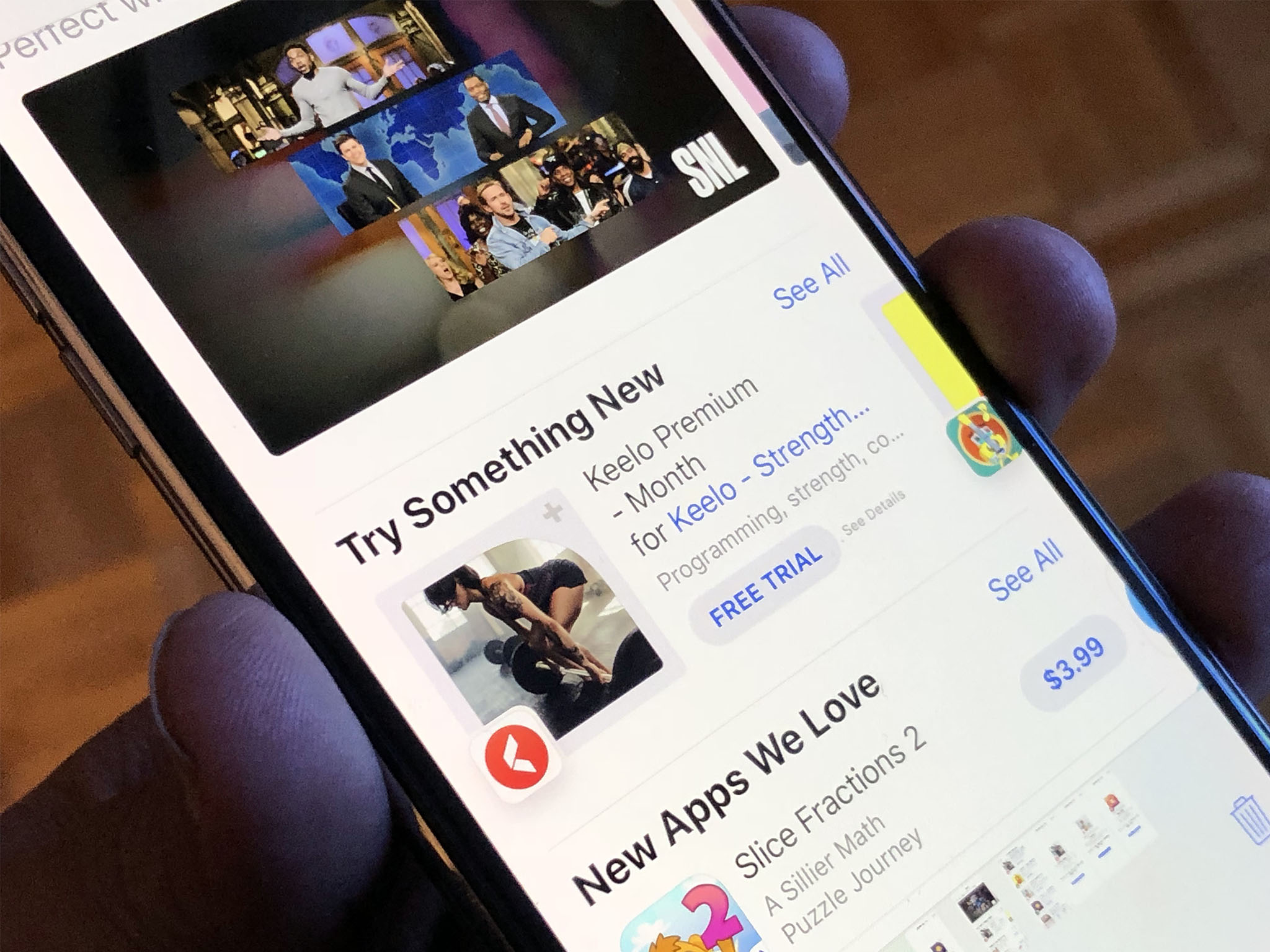How long will the trial take? What could an Apple or Epic victory mean for me? All that and more answered right here.
In just a few day's time, Epic Games and Apple will take to the courtroom in what could well be one of the most important court cases in the history of either company. In fact, it's not a stretch to say the outcome of the Epic Games antitrust trial against Apple, due to begin May 5, could have a huge ripple effect across the entire tech industry. That is, of course, when it's finally settled, because whilst the trial itself may only be a few short weeks, the true scope of the battle could span many years. So what exactly is each company fighting for? What are some of the practicalities of the trial, and just why exactly should any of us care about the outcome? We spoke to two of the world's leading industry experts on that very matter to help you cut through the noise.
Florian Mueller is an antitrust and patent litigation expert, who has closely covered some of the world's most important legal battles (including Apple vs. Samsung) over at FOSS Patents. Not only is Mueller a legal expert on the matter, but he's now a mobile game developer with a more personal stake in the fight. Neil Cybart is the founder of Above Avalon, dedicated to the coverage of Apple's financial fortunes. Cybart is one of the world's leading minds when it comes to all things Apple, and consistently ranks among the most accurate analysts when predicting Apple's quarterly revenue, EPS, and more.
We sat down with both to discuss some of the issues at stake in the case with one goal in mind, to help you the reader understand what's going on and why you should be interested in the case.
Firstly, I asked Mueller to give us a brief background on the case and to try and help us understand what we can expect over the coming weeks and months.
How would you briefly summarize what the trial is about?
Mueller: It all started last summer with Apple kicking Fortnite out of the App Store after Epic Games activated an alternative payment system of its own. But a lot of Epic's argument at the trial is going to be about the Epic Games Store, which Apple never allowed on iOS. It's a popular misconception that Epic just wants to bring down Apple's 30% commission. It's about essential freedoms and a direct relationship between app developers and users.
Epic says Apple has a monopoly on its App Store, how would you summarize Apple's response to that?
Mueller: At the heart of an antitrust case is always the question of market definition. No one would deny that the App Store is the only way to distribute games to iPhone and iPad users. But Apple says the proper market to consider is game distribution, which would include a wide variety of platforms. In such a broadly defined market, Apple could argue it doesn't have enough market share to be considered a monopolist.
Even if a court identifies a monopoly, an antitrust violation furthermore requires a finding of anticompetitive conduct.
Couldn't Epic Games and Apple fix this some other way, why does there need to be a court battle?
Mueller: When Epic CEO Tim Sweeney threw down the gauntlet to Apple's top brass by way of a 2 AM email last summer, he told them they'd be at war on multiple fronts for a long time. This here is not like a patent lawsuit that's just about royalty rates and you could find common ground somewhere in the middle. It's a pretty binary question: either there is an Epic Games Store on iOS or there isn't; either Fortnite can have its own payment system or Apple collects its 30% cut.
How long might this first trial last? And will there be anyone famous or who people might recognize giving evidence or testimony?
Mueller: Certainly more than two weeks, but most likely no more than four. Tim Cook and his counterpart Tim Sweeney will testify. Epic's CEO as well as Apple Fellow Phil Schiller even intend to sit in the courtroom every day to follow the trial.
**How might an Epic victory royale change the way I use my iPhone and the App Store?*
Mueller: You'd have a lot more choice, and prices for in-app purchases and subscriptions would come down very significantly. When a friend tells you about a cool new app, you might first have to find out which one(s) of multiple app stores carry it, but that's just one quick Google search. Theoretically, each app could separately request your credit card data, as shopping, parking, and many other kinds of apps already do. Practically, there'd be a few major app stores and apps that would use their payment systems. If Apple wants to make things more convenient for customers, it can store multiple accounts with payment systems in the iOS settings.
How might an Epic victory impact the wider world of big tech? Could Epic winning have an impact on other platforms like gaming consoles, Windows, or anything else?
Mueller: If Epic wins, there will undoubtedly be a debate over the commercial terms facing videogame makers. However, consoles have some different characteristics, such as being single-purpose devices and being used at home, where users have the widest variety of alternatives available.
Apple is fighting for the status quo of its App store and the iPhone, so is it fair to say that an Apple victory would mean things go on as they are just now?
Mueller: Call me a pessimist, but in that case, I would predict that Apple's restrictions on developers would get tighter, and we'd all end up spending more money. For example, Apple's new ad tracking rules will force app developers to focus more on IAP and subscriptions.
Regardless of who wins, this likely won't be the end of the fight, will it?
Mueller: Judge Gonzalez Rogers already said at one of the pretrial hearings that the losing party would certainly appeal. Sure thing. Either party will see it through and I believe this will be decided by the Supreme Court unless Congress legislates in the meantime, which might moot part of all of the case.
So in reality it could be many years before there is any true outcome to this case?
Mueller: It will take years before all appeals have been exhausted. But if Epic obtained an injunction against Apple and if its enforcement was not stayed, then the actual impact could be seen later this year.
Are there any other important cases like this that could have an impact on Apple, Epic, or the trial?
Mueller: This is the most important case as we speak, but Epic has also sued Apple in Australia and the UK and brought antitrust complaints with the European Commission and other competition authorities. What I believe Apple fears at least as much as this case is the EU investigation of Spotify's complaint. EU officials have indicated to reporters that a Statement of Objections, a preliminary decision, could come down in the summer.
iOS and Android are quite different operating systems with different policies (sideloading for example), so why is Epic suing both Apple and Google?
Mueller: The short version is that 100% of all iOS app business currently goes through Apple's App Store, but the market share of the Google Play Store for Android apps is also around 90%. There is a difference, but it's gradual. Sideloading is technically possible, but Google made it so cumbersome and issues security warnings, so in the end, it's not really a mass distribution channel.
Are there any other parties who aren't actually suing Apple, but might have an interest in this case?
Mueller: Yes, companies of all sizes. Microsoft with its Xcloud streaming service and its iOS versions of products like Office. Facebook, which has its own antitrust law against Apple prepared and could file it anytime. Spotify is primarily going after Apple through its EU complaint but would benefit from an Epic win. In fact, the Epic Games Store carries the Windows version of Spotify's app, so the same could be done on iOS. Match Group, the Tinder company, is also very active. And then there are countless small companies that are rooting for Epic. Some speak out, especially on Twitter, or have joined the Coalition for App Fairness. Others are silently keeping their fingers crossed.
Money talks
With all of the legal bases covered, we spoke to Neil Cybart to break down how this trial could affect the bottom line at Apple, and the pockets of consumers.
Apple and Epic are going to war over the App Store, payment processing, etc. Just how much money is at stake here for everyone involved?
Cybart: My estimate is that Apple generated approximately $16 billion of revenue from the App Store in 2020. Apple reports App Store revenue on a net basis, which excludes the amount paid out to developers.
The extreme stress test would bring Apple's App Store revenue share to zero, which would mean Apple would lose about 5% of its overall revenue. Of course, a scenario in which the App Store loses all revenue-generating capabilities for Apple (again, very unlikely) would likely lead to negative impacts on product sales as well.
For Epic Games, the potential revenue upside found with having its own "app store" on the iOS platform is so attractive that such prospects are driving its entire lawsuit and guerilla warfare campaign against Apple.
An Epic victory (appeals notwithstanding) might have a very big impact on the iPhone, iOS, etc, do you think that would have a negative impact on Apple's bottom line, or indeed how it is seen as an investment prospect.
Cybart: If we assume a scenario in which third-party app stores are available on iOS, a good argument can be made that the experience found with using Apple devices would take a few steps back. As to whether or not that weaker experience would actually lead to lower product sales, that's difficult to assess. It's fair to say that customer satisfaction rates would decline over time as users would begin to see what it was actually like to download third-party software prior to the App Store. (Spoiler: It wasn't as great as some developers want you to believe).
One argument in the case might come down to the "value" of the App Store, how much developers pay, how much Apple takes, vs how much everyone gets out of it. How would you summarize the value of the App Store to developers and consumers?
Cybart: Apple will focus its argument on how the App Store benefits developers and consumers while Epic Games will try its best to argue the opposite. The strongest argument for Apple will involve talking up the App Store as promoting user privacy and security. Epic will try to put holes in Apple's argument, possibly by pointing out how the App Store doesn't prevent the presence of "scam" apps in the store. Apple has the stronger argument there.
For developers, Apple will argue that the App Store makes it possible for every developer to reach iOS users while revenue share percentages are in line with or lower than that of competing platforms. It is logical to expect Epic will paint the App Store as something akin to a prison for developers.
How might an Epic victory or changes following the trial impact real-life users financially. Could apps get more or less expensive? Or could the price of the iPhone change?
Cybart: The primary consideration with having the App Store rather than a collection of third-party app stores on iOS is found with the user experience. Most apps don't even transact revenue through Apple payment as it is, so it's not just about cost to the consumers.
Coming soon
Four weeks and a $16bn source of revenue. With the Epic Games vs Apple suit mere days away, it wouldn't be dramatic to say that this lawsuit could be one of the most important in Apple's history. We'll be here to take you through the trial day by day, bringing you all of the best witness soundbites, arguments, and the facets of the case that matter most to consumers and developers alike.
If you're interested in some of the deeper legal arguments in the case, points of law, and the things that parties will be fighting it out over in court, you might want to start with our unpacking of the legal arguments of Apple and Epic Games from last year. For a history lesson on the trial from last year, check out our first conversation with Mueller and Cybart.
Apple vs Epic Games will call in the District Court of Northern California, the trial begins on May 3.





No comments:
Post a Comment